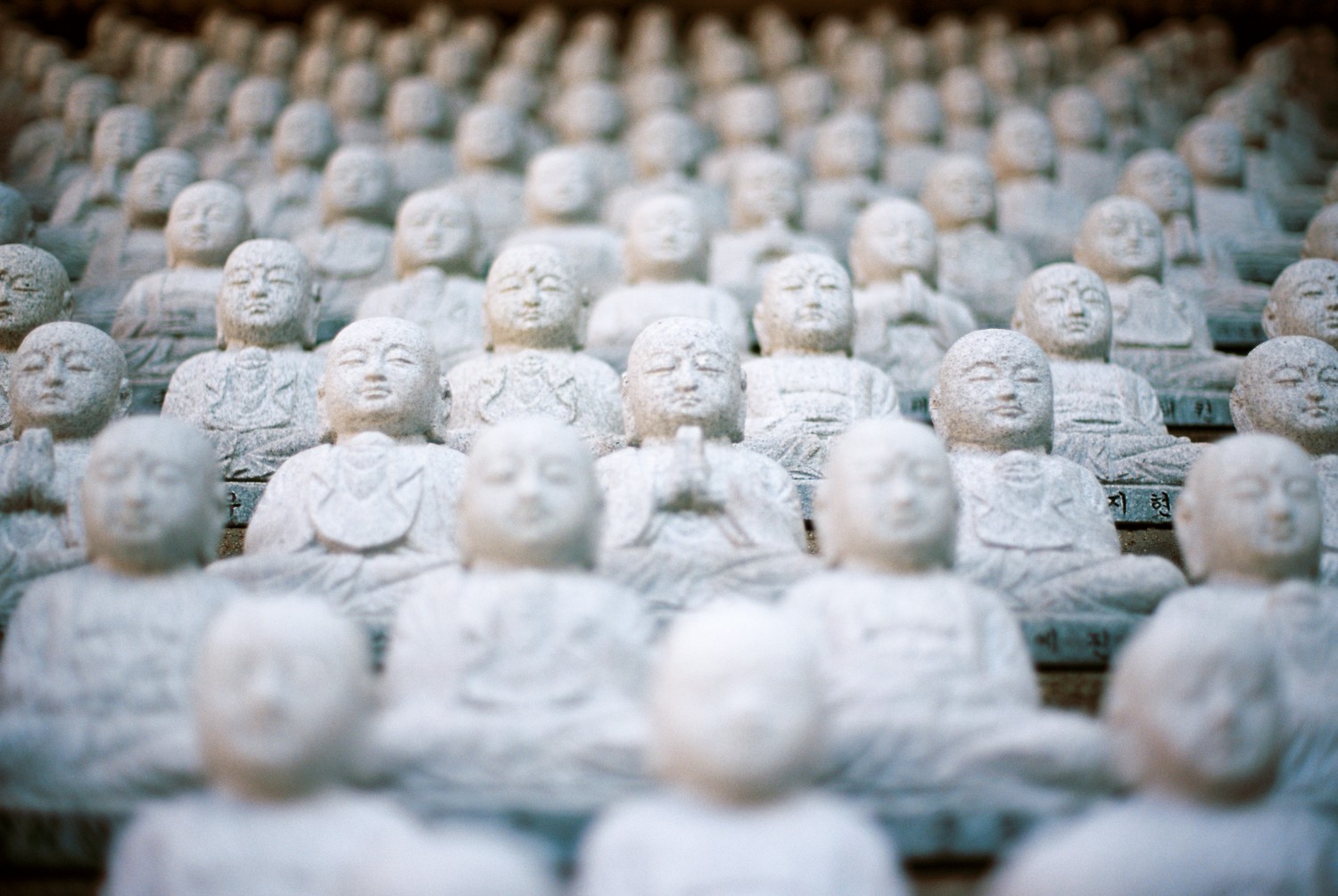How I Change My Internal Landscape
It was January of 2011 when I was first introduced to the practice of meditation. I was at Pure Yoga — a posh Upper East Side yoga studio in NYC — for part 1 of my yoga teacher training. Although I had been practicing yoga (asana practice, or the physical practice of yoga that is) for a few years by then and enjoying the spiritual aspect of yoga, I had not taken up the practice of meditation.
By the time I signed up for my yoga teacher training, I understood that meditation was the ultimate reason the physical practice of yoga was invented (so that one could sit comfortably for long periods of silence —though I, like many, consider the physical practice of yoga very much a meditation in itself, a moving meditation that is) and that the spiritual masters meditated to achieve enlightenment and prescribed to others to do the same. And yet, I had kept my yoga practice meditation free up until that point.
At the time, I already had a regular spiritual practice, which consisted of prayer and scriptural reading among other things. And since theses things brought about an intensely heightened state of being: emotional, mental, and energetic for me (I admit, which at times were exhausting), meditation seemed like a lackluster cousin compared to them. It almost seemed boring and ineffective in raising my consciousness and bringing me closer to the divine, which was my intention in my spiritual effort.
Also, to be entirely honest, I was a bit worried that I would be doing something wrong spiritually by meditating, as I had been a devout born-again Christian for 8 years, and sitting quietly going into the void didn’t seem like a practice that was encourage by the Christian Community. However, I had also become slightly disillusioned by “Christianity” in the previous few years, that I was once again embracing my childhood philosophy (which actually never really went away anyway) that the essence of all religions is the same — love, kindness, compassion — and it didn’t matter what religion anyone practiced. In addition, growing up with a devout Buddhist grandmother (who believed all other denominations and religions were bad) and secular parents kept things in perspective even when I was at the height of my Christian “devoutness.”
I went into the practice of meditation with a mixed bag of thoughts and feelings — worry, fear, skepticism, curiosity, and willingness to try. But I kept at it, willing to give it a chance though I was resistant and skeptical. It was partly because many of the teachers and authors that I highly respected and admired like Wayne Dyer, Deepak Chopra, and Martha Beck all spoke of the transforming power of meditation, and partly because meditation was undeniably at the heart of the yoga practice that I loved so much.
So I kept on. Fast forward 6 years, meditation has become central to my spiritual practice. It went from being a lackluster cousin to being at the heart of my practice along with prayer and scriptural reading.
Now I do it, not because I think I’m supposed to or someone I admire says I should, but because I have come to enjoy the practice and benefit from it immensely in my life. It helped me evolve. It helped me become a more grounded, aware, and peaceful person. It continues to help me evolve.
No, I have not achieved an enlightened state of being in my meditation…yet, but even without experiencing that, benefits I feel and see are many. And no, I didn’t always enjoy mediation and felt peace and calm during meditation, but I stuck with it, and I’m reaping the benefits (though I still don’t always feel peace and calm). I have a feeling I will continue to reap the benefits.
Here are 5 reasons I meditate:
- My life is chaos without it.
It is sort of embarrassing to admit that I notice the effects of meditation when I don’t do it consistently but it’s true. I’m agitated, irritable, easily disturbed, anxious, and the list goes on. My life just doesn’t seem to work. I say this to myself when this happen: “Oh yeah, I haven’t been meditating that much lately…”
2. My life works better.
The opposite is true when I do meditate consistently. I feel peaceful, grounded, calm, and spacious. My relationships seem to work better and I seem to enjoy my life more and I’m more present. All kinds of things could be happening but I’m able to handle them better, much better.
3. My brain can chill out.
When I can get past the chatter of my mind and enter into a more spacious state, which usually happens with regular, consistent practice (it’s like any other new skill I need to cultivate), I can feel my brain relax — yes, it’s a visceral feeling. It feels nice. It’s kind of a “ahhhhhh” moment for the brain and I feel refreshed.
Scientifically speaking, meditation can change the frequency of the brain and take us from the high frequency Beta Waves — which is where most of us reside in our active, analytical mind state — to the slower frequency brain waves like Alpha Waves (state of deep relaxation) and Theta Waves (subconscious mind state). Meditation literally changes our brain state. This explains how I feel relaxed and more spacious in my brain when I meditate. My brain can literally chill out, and that’s a good thing, if your mind works anything like mine.
4. My mood is better.
I feel a sense of well-being when I meditate regularly and consistently. I feel calm and gentle, and I’m much more patient and kind with others. Things don’t bother me as much and I go on enjoying each moment.
5. I’m more aware.
One thing meditation has helped me tremendously is to become aware of my state of being, my thoughts, and my feelings. When my mind is agitated during meditation, I’m able to observe that agitation and the thoughts, and that observing awareness carries on to my daily life. This is important because having awareness is the first step in changing any unwanted habit or behavior (and at the same time, in bringing self-acceptance and compassion to having the unwanted habit or behavior).
More I meditate, more I’m able to become the observing witness to my thoughts in my most judgmental, critical, agitated moments in my non-meditating hours. This allows me to question my thoughts and get some perspective about whatever situation I’m in. I become more and more self-aware.
So, you’re interested in meditating?
There are so many free online resources available nowadays that you don’t even have to leave your home to start meditating. You can start with a simple guided breathing meditation on YouTube or on meditation apps on your phone. You can also get meditation CDs or downloadable mp3s from your local libraries. Options are many.
I personally recommend meditation teachers Sharon Salzberg (author of Real Happiness) and Jon Kabat-Zinn (author of Full Catastrophe Living, which is a really wonderful book I recommend as well). I love their approach to meditation which I find to be simple yet profound.
If you do start meditating, which I hope you do, let me know how your experience goes.
Enjoyed reading this article? Click on the ❤ below so more people can enjoy it, too 🙂
Originally published at medium.com


